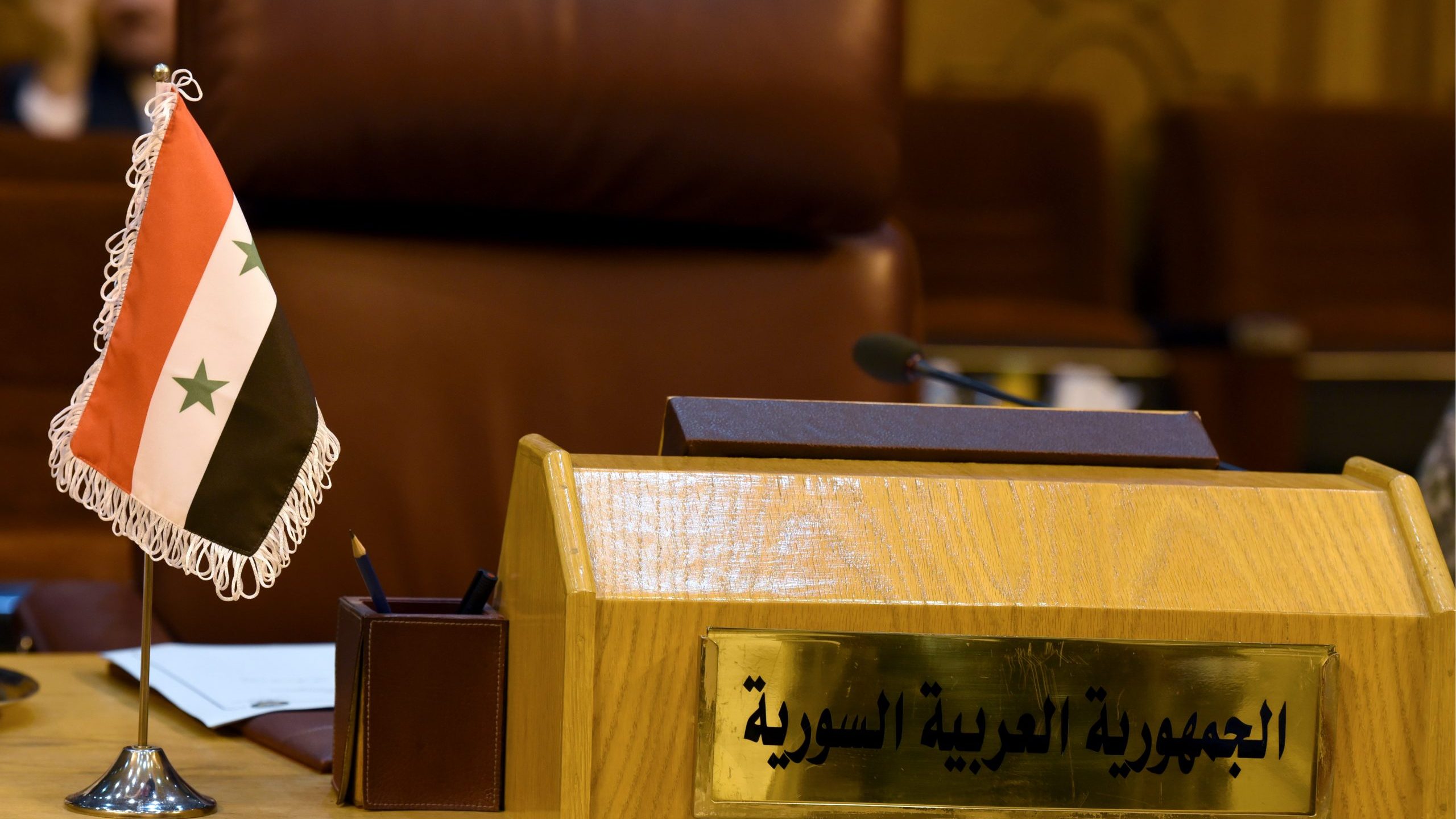The momentum of Arab normalization of ties with Damascus that had started two months ago has slowed down and collided with several new factors and led to the introduction of new conditions.
Arab countries that have signaled rapprochement with Damascus are now waiting for it to take its own steps related to interior and geopolitical issues before making any further moves towards normalizing ties.
In other words, the door leading towards Syria’s return to the Arab League and participation in the upcoming group summit in Algeria hinges on various conditions, at least for the time being.
Two months ago, Syrian President Bashar al-Assad telephoned Jordan’s King Abdullah II; their countries exchanged security, economy, and military visits; the United Arab Emirates foreign minister visited Damascus and met Assad; Assad received telephone calls from Arab leaders after Syria’s presidential “elections” and Syria has joined various international organizations, such as Interpol and OAPEC.
Added to the above is Syria falling on the list of the Biden administration’s priorities. Washington has limited its interest in Syria to providing humanitarian aid and fighting ISIS and has abandoned Donald Trump’s “maximum pressure” policy.
Biden’s team had carried out talks with Russia that includes Washington’s “clarification” of sanctions and offering “waivers” to them on humanitarian grounds. It has also agreed to Moscow’s suggestion to fund “early recovery” projects. Russia, meanwhile, has been pressing Arab countries to normalize relations with Damascus. Algeria has also said that it welcomes Syria at the March 2022 Arab League summit.
This normalization path has stalled and was put on hold for various reasons.
Read Also: Turkey and Qatar: Normalization with Assad Regime Cannot be Achieved
First of all, not all major Arab countries were unanimous in supporting Jordan and the others’ rapprochement with Damascus. Several Arab capitals even questioned whether Jordan’s “step-for-step” approach with Damascus would succeed.
Meanwhile, Syria’s return to the Arab League demands several steps, notably technical ones that start with the approval of the Arab ministerial council before the summit is held. Politically, a consensus is needed from major Arab countries so that quorum is met at the council.
The recognition of the importance of Syria’s return to the Arab fold is there, but Damascus needs to take geopolitical and internal steps that ensure that it is not used as a pawn to further Iran’s agenda in the region. It must also dismantle drug smuggling networks and cooperate in the fight against terrorism. It must work on providing the grounds for the safe return of refugees to their homes and make progress on the political level according to United Nations resolution 2254.
These positions have been relayed to Washington, which is torn between the stance on Syria envisioned by the U.S. National Security Council’s coordinator for the Middle East, Brett McGurk, and the one shared by Congress. Arab doubts over normalization have strengthened the position of doubters in Washington and have increased demands that the Caesar Act remain in place. Evidence of the American position was shown when the Treasury could not offer enough guarantees to Egypt and Jordan to go ahead with the Arab Gas Pipeline and exempt it from the Caesar Act.
In October, Washington announced it will not normalize ties with Damascus and that a price needed to be extracted from Damascus. The tone has now shifted to Washington discouraging all sides against normalization and against sending wrong messages to Damascus. The U.S. has also held an open session at the UN Security Council on the need to hold war criminals in Syria to account.
The Americans have refused to join Russia in holding political negotiations over Syria. They stressed that lifting sanctions on Damascus was not on the table. So talks between Washington and Moscow are now limited to humanitarian aid and the military deployment in eastern Syria.
The Americans are banking on Russia voting on extending the UN resolution on delivering cross-border aid to Syria for another six months. In return, they would be willing to provide funding to early recovering projects and other aid. The concessions are now, however, becoming further tied to coordinating stances with London, Paris, Berlin, and Arab capitals.
All of the above in no way signifies a return to the policies of the previous decade. Yes, the Biden administration has abandoned Washington’s policy of “state-building” and “regime change”, but the signals from Arab and European capitals and Washington say that “closing the chapter of the past comes at a price.” Just as the others need to have a reading of the situation in Syria, Damascus needs to have a reading of the situation in its country and the region that will pose a serious test to the “step-for-step” approach.
This article was edited by The Syrian Observer. The Syrian Observer has not verified the content of this story. Responsibility for the information and views set out in this article lies entirely with the author.


